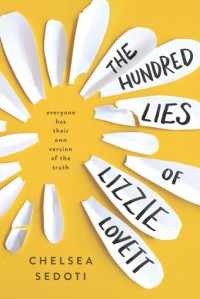An obnoxious and annoying main character that you’ll care about.

Thanks to Net Galley and to Sourcebooks Fire for offering me an ARC of this book that I voluntarily chose to review.
This Young Adult novel is told in the first person by the protagonist, Hawthorn, a girl named after the tree, not the writer, as she has to clarify many times throughout the book. She’s seventeen and not the most popular girl at school. She feels the least popular, as she only has one friend, Emily, she never eats at the cafeteria to avoid others, never gets invited to parties… She has an older brother, Rush, who was a popular football player in High School, although he hasn’t made his dreams come true, her mother is a hippy who stays at home baking and cooking vegan food that nobody seems to appreciate, and her father is more practical and keeps trying to push Hawthorn into choosing a college and growing up. Hawthorn, who writes the story in a diary format, in the first person, is not a lovely girl (well, she is lovable but that’s different). She is selfish and has nothing kind to say to anybody or about anybody. As is often the case at that age, she always thinks the worst of anybody who tries to get closer to her and assumes that everybody’s life is better than hers. She also knows everything and everybody else is boring and/or lame. Let’s say that although she complains bitterly about how unfair her life is, it is not surprising that she doesn’t have a big fan club.
Then, one of the popular girls, Lizzie Lovett, who went to High School with her brother and had since left to live in a nearby town, disappears. She was a cheerleader and a popular girl, everything Hawthorn assumes is a recipe for happiness. She dismisses everybody’s concerns and decides that she’s alive and well. Later, she comes up with a fantastic and paranormal explanation for the disappearance, something that makes her the butt of everybody’s jokes. Somehow, despite the dislike she manifests for the missing girl, she decides to learn everything she can about her in order to prove her theory right, and that becomes her mission in life. That results in her investigating her life, working at her old job and even befriending her boyfriend.
The writing is strong and the character of Hawthorn is realistic and strongly rendered (like her or not. After all it takes all kinds of people). However much or little we might like her take on life (she does moan a lot and can be extremely negative, not only about herself but about everybody around), she is clever, she has a strong imagination and she refuses to be constrained by other people’s expectations and never follows other people’s lead. She refuses to grow up if that means you have to become dull and you can only do what others have done before. How convinced she is of some of her hare-brained schemes is debatable (even she comes to question that towards the end) but that doesn’t stop her or make her less determined.
Throughout her investigation and her adventures, Hawthorn gets to hear quite a few truths about herself; she discovers that she should extend the kindness and tolerance she wishes for herself to others and finds out that friends aren’t there only to make you feel good and to agree with you. She also discovers that people aren’t who they seem to be, that identity is fluid, and that happiness is less straightforward than she imagines.
Hawthorn’s character grows and matures during the book, even if others don’t, and the cast of secondary characters, that include the members of her family, the people at the café and the visiting hippies, are vividly portrayed and all have important lessons to teach. Even Enzo, Lizzie’s boyfriend, offers her an insight that is reproduced in the novel itself: sometimes it’s best to leave the ending to the imagination and not to tie all the loose ends. We can’t know everything but that doesn’t mean we can’t make good use of what we learn along the way. (I don’t mean the novel doesn’t end; it does and in a satisfying if somewhat unsurprising way, but the mystery of Lizzie Lovett isn’t fully resolved.)
This novel is strong on characterisation and makes us share the life of a seventeen-year-old girl (however uncomfortable that might be), one that craves excitement and interest and likes to bring drama into her life. I have read negative reviews by people who strongly dislike the main character, although acknowledge the book is well written and the character sounds real. Perhaps for some of us, Hawthorn reminds us of aspects of our personality and our experiences as teenagers that we’d rather not remember because there’s no doubt that most of us have at times been as obnoxious and annoying as her. The mystery and the plot aren’t the main drivers of the book, therefore, I recommend it to those who enjoy character driven novels, quirky stories and personalities, and to those who still remember or want to, the difficult and challenging years of adolescence. And of course to young adults looking for a different kind of heroine.
 1
1
 2
2







